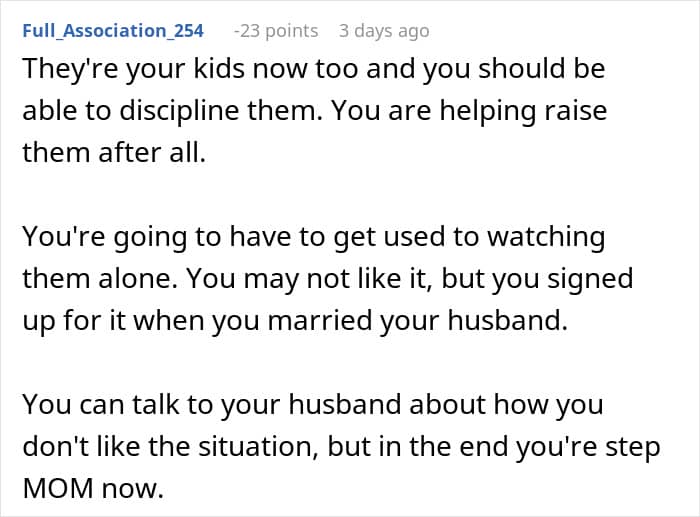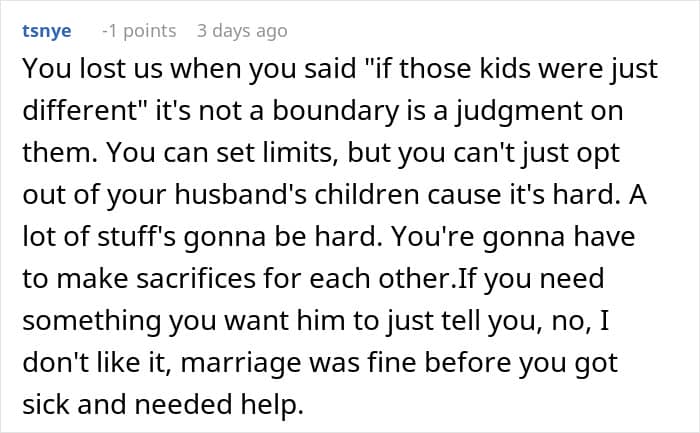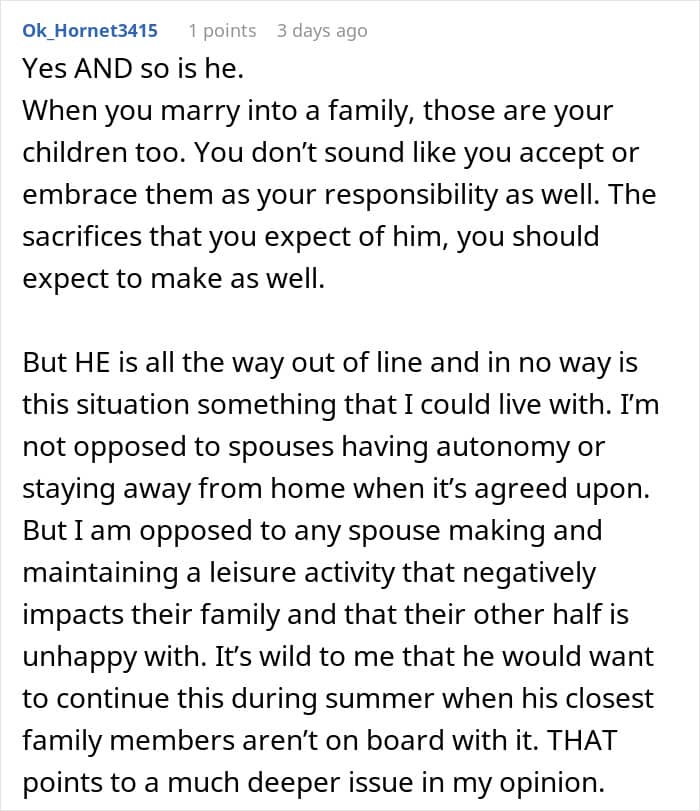The role of stepparents comes with a lot of uncertainty and challenges. Every situation they face requires caution and deliberation, as one wrong move can throw their progress with stepkids backwards. At the same time, they have to think about what’s good for them so they can feel like full-fledged members of the new family.
Unfortunately, this woman, who already shouldered most of the responsibilities in the household, felt uncomfortable when her husband chose to leave his two sons with her overnight so he could enjoy his hobby. So, she voiced her concerns to him, but he felt she was being unreasonable, which pushed her to turn online for unbiased opinions.
Scroll down to find the full story and conversation with a blended family coach Brittney Phillips, stepparenting counselor Susan Haworth, and blended family parenting coach Amy Ambrozich, who kindly agreed to talk with us more about stepparents overwhelmed with responsibilities.
RELATED:Stepparents might not even notice how many responsibilities they shoulder while being focused on family well-being

Like this stepmom, until she decided to draw a line when her husband wanted to pile up more on her
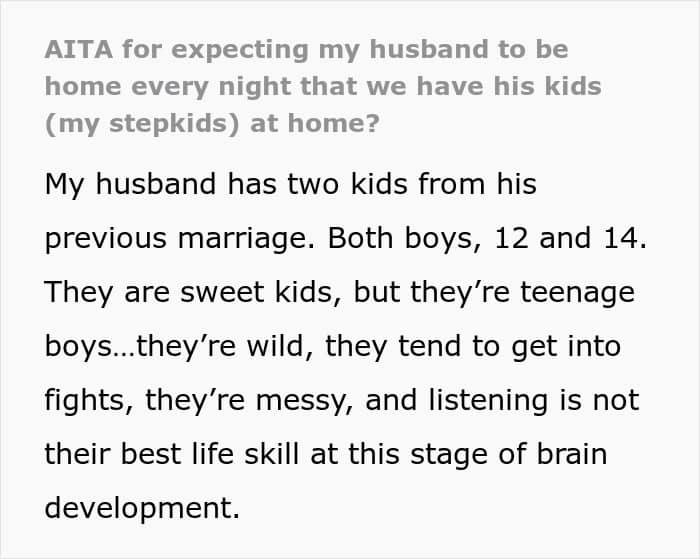



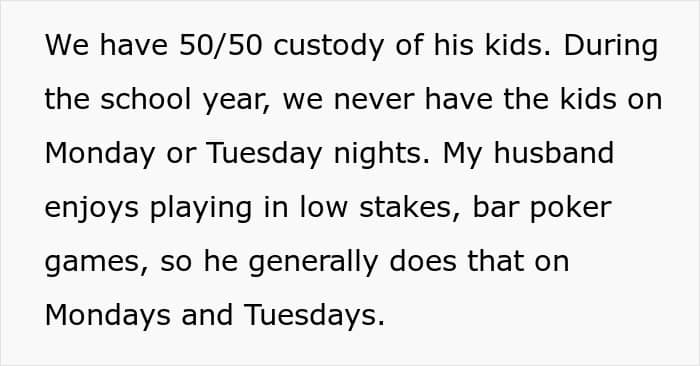
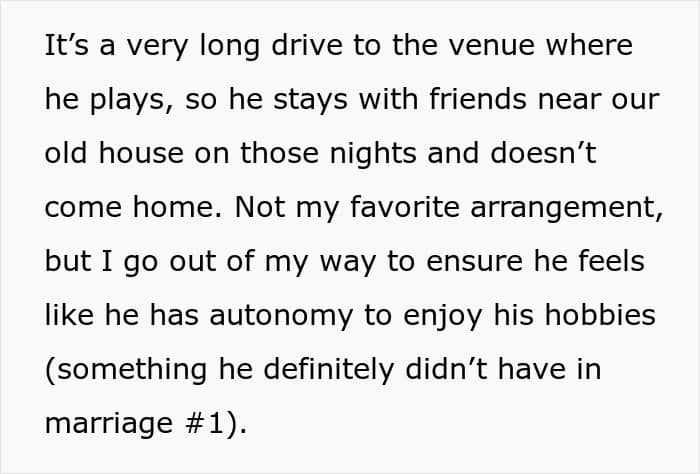
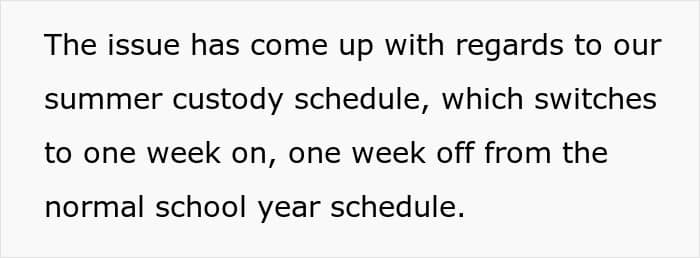
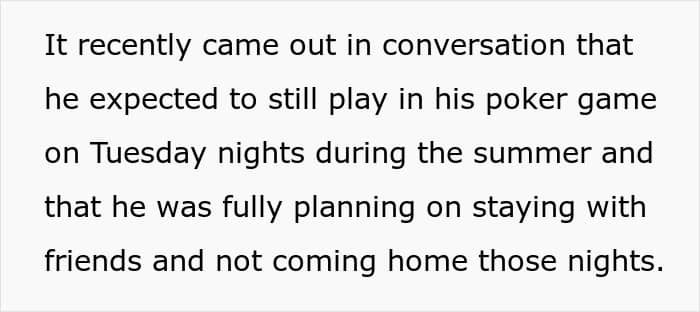
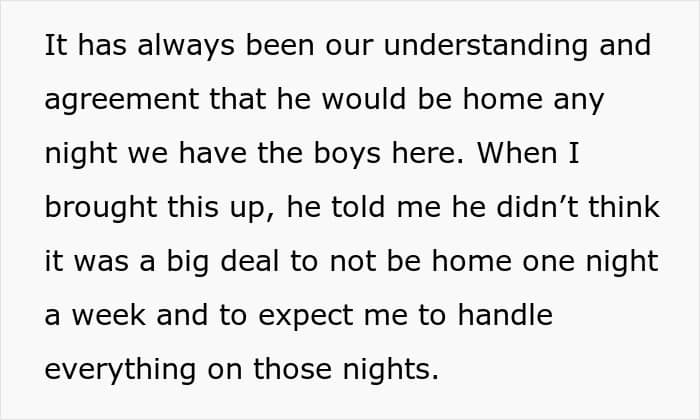
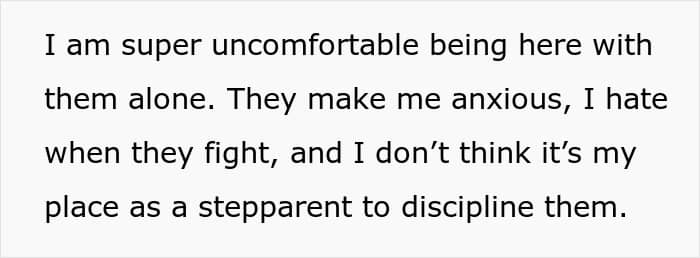
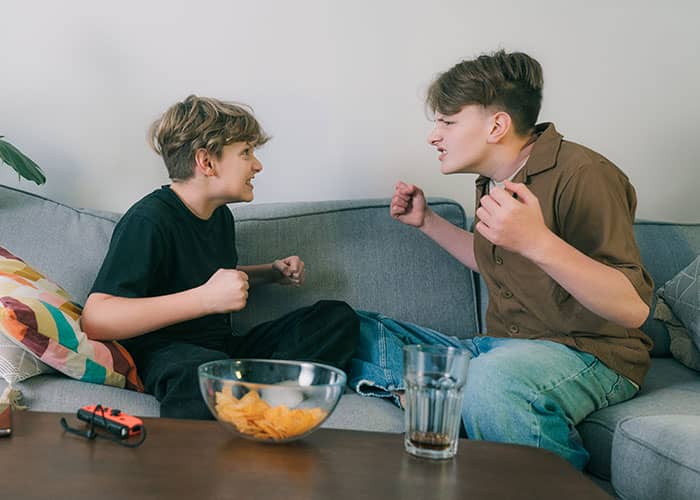
Image credits: Okrasyuk / envatoelements (not the actual photo)
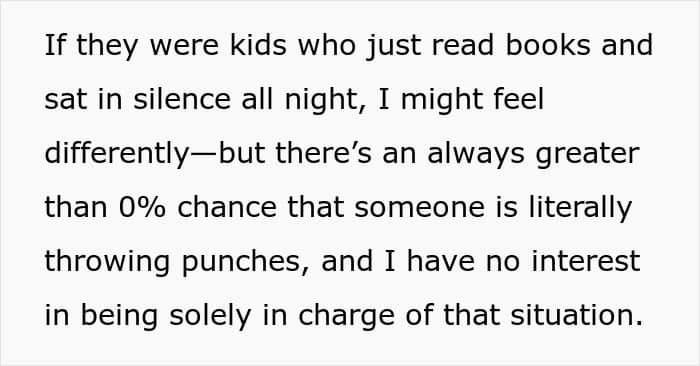
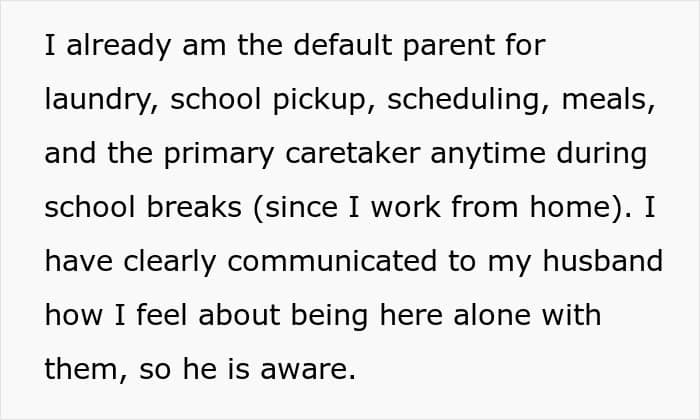
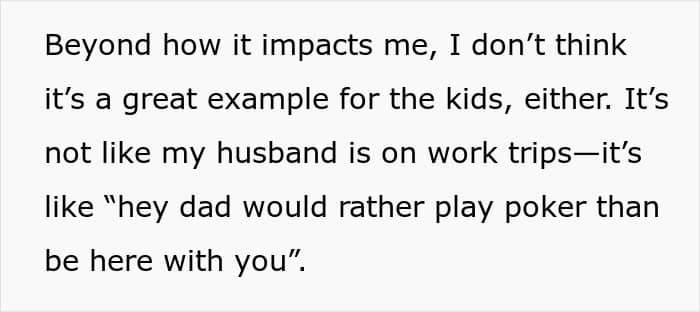
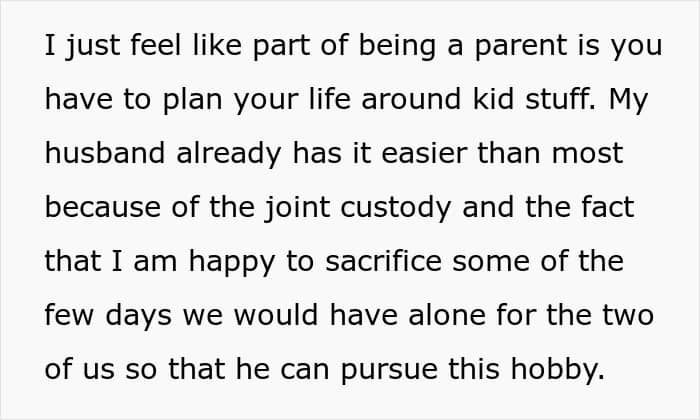
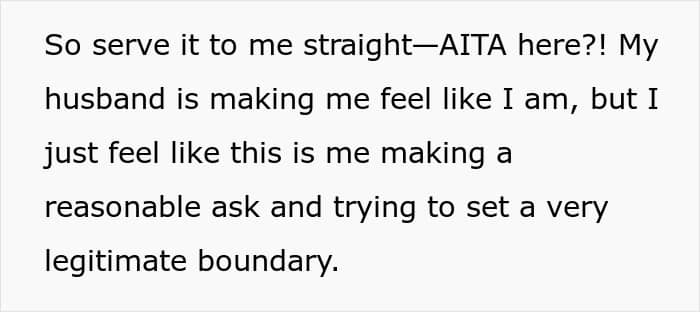
Image credits: Educational-Nature35
It’s unfair to overload stepparents with duties and expect them to become the ‘default parent’

Image credits: dragonimages / freepik (not the actual photo)
While stepparents are focused on forming a bond with stepchildren and creating and supporting family well-being, they can sometimes take no notice that the majority of household responsibilities have somehow ended up on their shoulders. We‘s interviewed experts say that it’s unfair to overload stepparents with duties and expect them to become the ‘default parent.’
‘It’s not fair to expect anyone (stepparent or not) to just slide into the role of default parent without checking in about it. Yet it happens all the time, especially when life is chaotic and people are just trying to keep things moving. Stepparents can absolutely be supportive, involved, and loving… But that doesn’t mean they should be expected to carry the load without a choice. What usually works best is when both partners sit down and talk openly about what each person can handle, where support is needed, and what feels doable…not just what’s expected,” says blended family coach Brittney Phillips.
“Another thing that’s really important to remember is that it’s okay for a stepparent to change their mind. Maybe they said yes to doing school pickups or helping with homework every night, and then realize, “ this isn’t working for me anymore.” That doesn’t make them flaky or selfish, it makes them human. Flexibility is key in blended families. We’re all learning as we go. It’s about working to stay on the same team and making sure everyone’s still on board with the game plan.”
Even though the majority of women (moms and stepmoms included) nowadays are employed, they are often the ones who continue to shoulder most of the childcare and household chores.
“Stepmothers face some of the same challenges as most mothers: we “overfunction.” Even when both partners work full time, women still do the “lion’s share” what’s required to keep a home running smoothly. The expectations of women may not change when a woman steps into the role of stepparenting. We are cast in the role of nurturers. Of course, the big difference is that the children we’re nurturing are not our own. As a result, many stepmothers begin feeling like nannies,” explains stepparenting counselor Susan Haworth.
“When a stepparent feels the weight of parenting responsibilities shifting onto them, it’s often a sign that some important conversations need to happen”
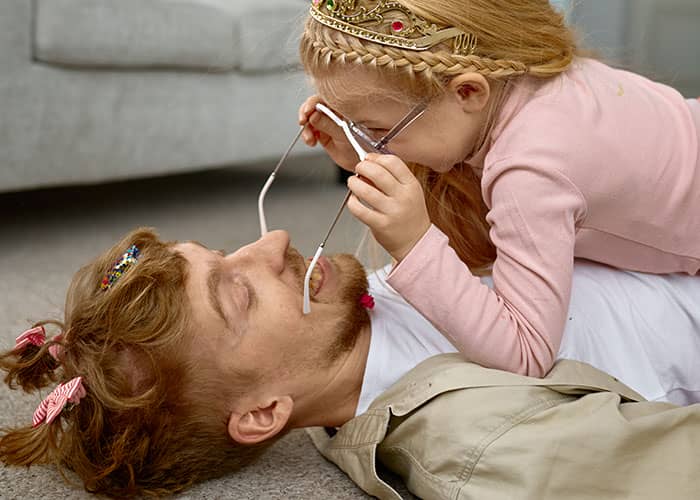
Image credits: nomadsoul1 / freepik (not the actual photo)
When stepparents start to feel that their partner is asking too much of them, they should address the issue and set healthy boundaries. However, it’s important to do it in a way that respects both parties involved and allows everyone to be heard and find common ground.
“When a stepparent feels the weight of parenting responsibilities shifting onto them, it’s often a sign that some important conversations need to happen. It’s okay—and healthy—to speak up when the load feels unbalanced. Setting boundaries isn’t about being unwilling to help; it’s about protecting the relationship, the family dynamic, and your own emotional well-being,” suggests blended family parenting coach Amy Ambrozich.
“Start by scheduling time for an intentional, calm conversation with your partner. Use “I” statements to express how you’re feeling, such as, “I’m feeling overwhelmed and unsure about how much I’m supposed to take on.” Then shift into partnership mode by saying something like, ‘Can we talk about how we’re sharing parenting responsibilities and what we both expected this to look like?’” she advises.
It might also be a great time to come up with a parenting plan, something many couples skip when blending families, says Ambrozich. “Talk through what roles feel natural and what feels like too much. Be clear about your capacity, especially when it comes to discipline or daily logistics. When stepparents take on too much too soon, it can strain the relationship with the child and lead to resentment between partners,” she warned.
“Healthy boundaries are essential for long-term success. When both partners are on the same page—openly communicating and adjusting as needed—the family becomes more balanced and resilient. And remember, setting boundaries isn’t a rejection of the child or the family; it’s a way to show up fully in the role you can sustain, while protecting your connection with your partner.”
Even though blended families already juggle a lot, it’s crucial to find time for individual hobbies that allow both parents to de-stress and enjoy themselves. “It’s so important to remember that you’re allowed to have a life outside of parenting. In fact, you NEED it. And in my personal opinion, I think it’s good for the kids to see that you have hobbies and interests also. It’s all about finding a good balance,” says Phillips.
“The key to success is staying on the same page as a couple. I love when couples do a weekly check-in (even if it’s quick) where they talk about the upcoming week, what needs to get done, and when each person can have some time to recharge. It doesn’t have to be perfectly equal every single day, but it does need to feel fair over time. You definitely don’t have to give up your hobbies or alone time to be a good parent or a good partner. When both people are getting their cups filled, they show up so much better for each other (and for the kids!).”
Of course, it’s important to mention that every family is different and what works great in one home might not work at all in another. “And that’s okay! Some stepparents are involved in daily parenting, while others take more of a support role. Some are like a bonus parent while others are more like a trusted adult or mentor. None of these roles are “less than.” The beauty is in finding what works for YOUR family,” concludes Phillips.
The stepmom responded to some things commenters brought up
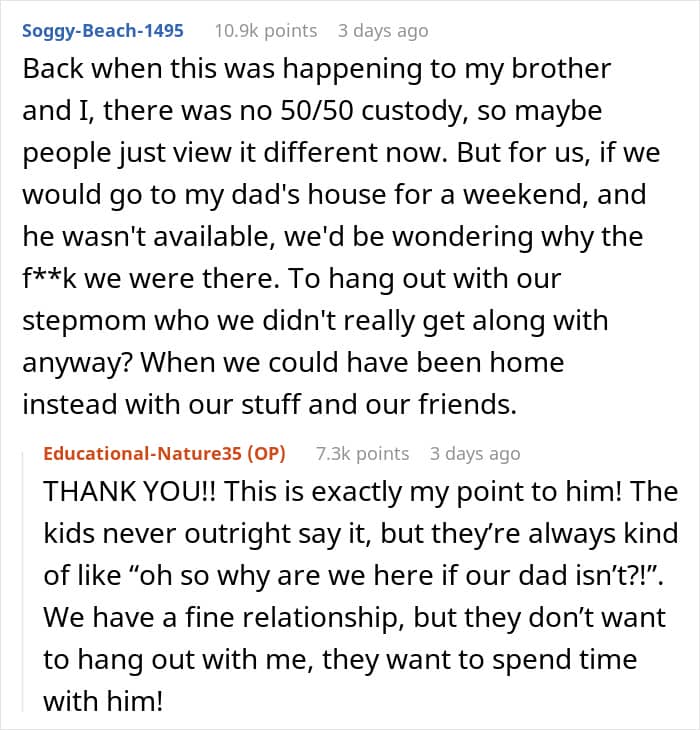
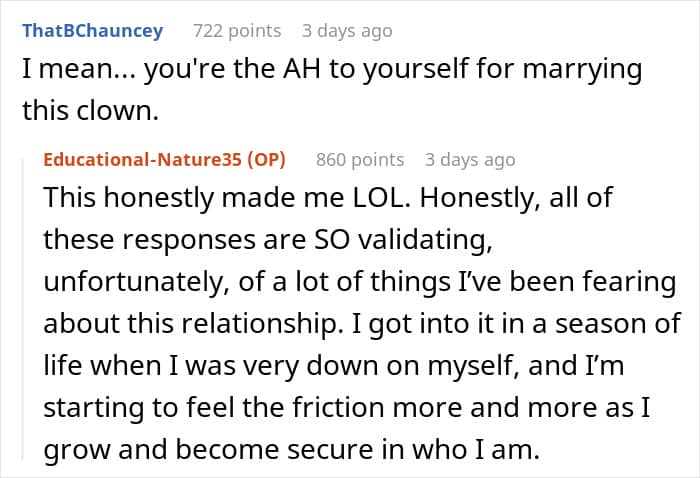

Overall, many readers supported the stepmom



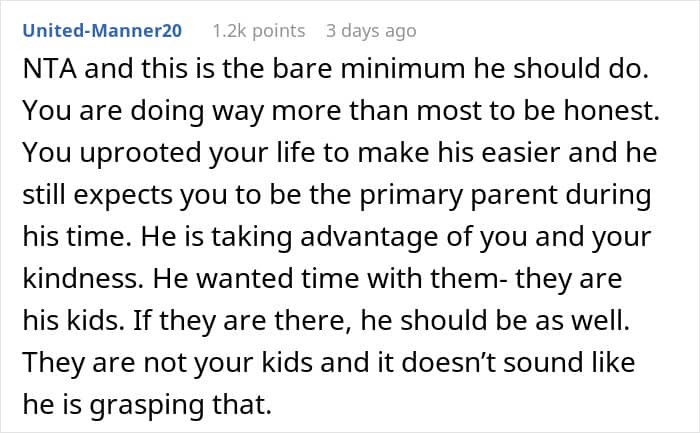



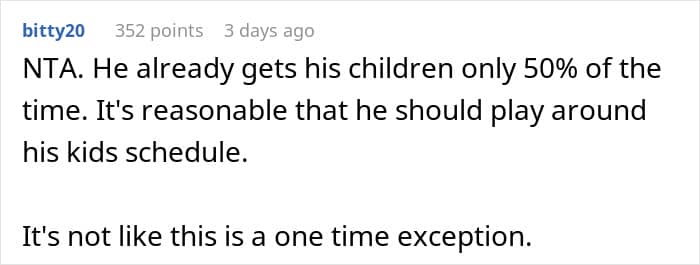


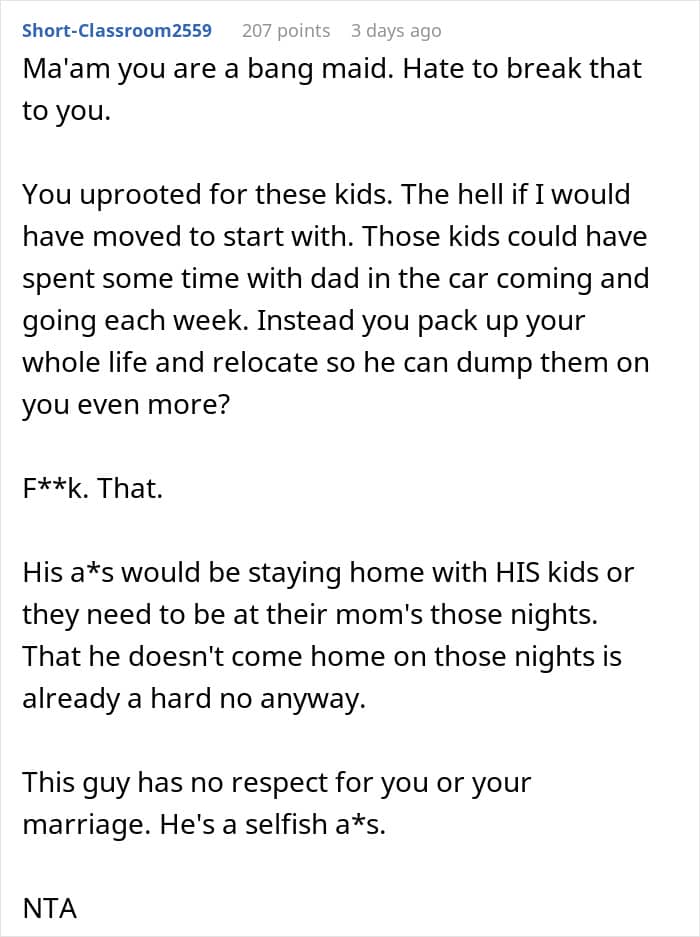

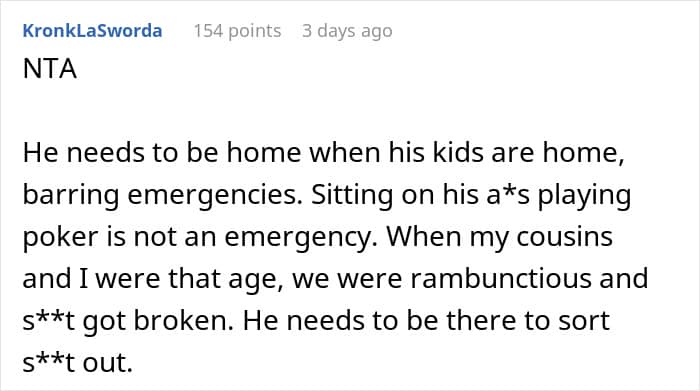







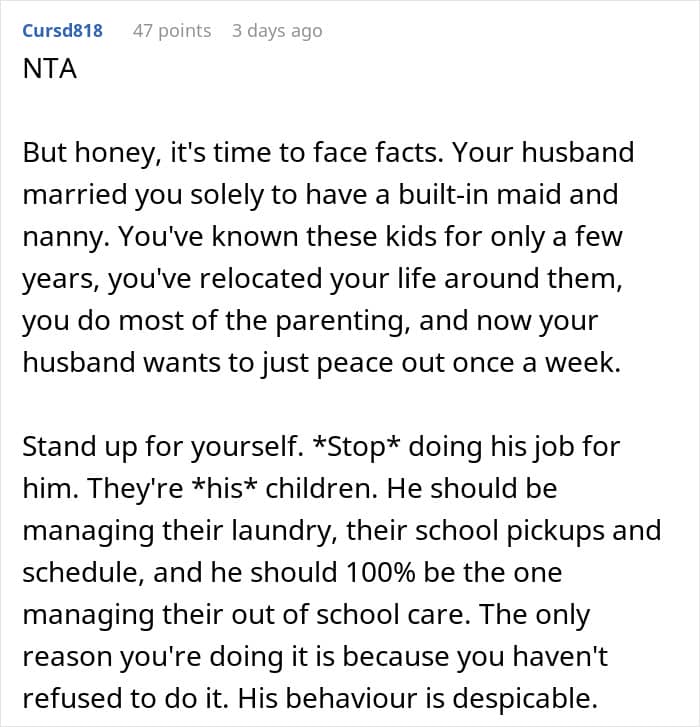
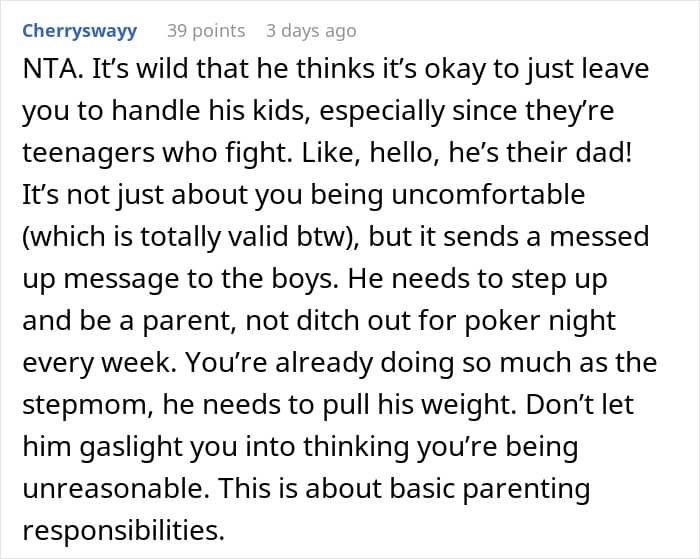
Some readers thought she should have known what she was signing up for